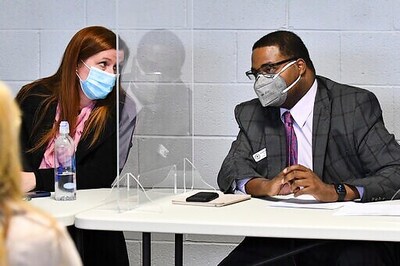
views
"Moral values voters" may have made the difference for President Bush and Republicans in the 2004 election.
These voters were driven to the polls not only by their support for the GOP, but also by the dozens of state ballot measures dealing with issues like same-sex marriage and gambling.
While some strategists say it is hard to pinpoint to what degree these issues motivated evangelicals and conservatives to turn out in 2004, both parties plan to emulate the strategy this fall by putting moral values issues on state ballots and debating these topics in Washington and on the campaign trail.
Congressional Republicans have unveiled their "American Values Agenda," a platform that includes banning embryonic stem cell research, gay marriage and flag-burning. Democrats have called the GOP's "values" focus election-year "pandering" and put out their own agenda dealing with issues like rising health care costs and increasing the minimum wage.
In June, the Senate rejected a constitutional amendment banning same-sex marriage by a vote of 49-48. The measure also failed in the House in 2004, the same year President Bush came out in favor of it. Voters in up to eight states may see ballot measures on same-sex marriage at the polls this fall. Congress also considered a constitutional amendment banning flag-burning. The Senate fell one vote short of passing such a measure in June. It passed the House last year.
The fight over embryonic stem cell research has proved to be a murkier issue, finding supporters and opponents on both sides of the political divide. In July, President Bush used his very first veto to strike down legislation that would have expanded federally funded embryonic stem cell research.
The issue will be put to the test in Missouri, where a measure supporting research and access to stem cell treatments will be on the November ballot. It is dominating that state's hotly contested Senate race, and strategists in both camps believe it could motivate turnout enough to make a difference for either side.
Abortion will once again play a big role at the state level this fall. In South Dakota, voters will weigh in on the most restrictive abortion law in the nation. The legislation was signed into law in March by Republican Gov. Mike Rounds, but was not enacted after opponents launched a successful petition drive to put the issue directly before voters. Abortion rights opponents see the South Dakota measure as a possible Supreme Court test case that could lead to the overturning of Roe v. Wade.




















Comments
0 comment